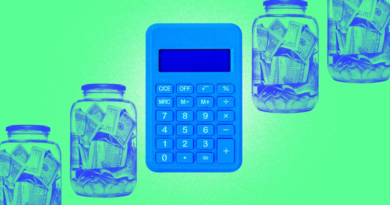The economist who’s been predicting a recession for 18 months says the ‘litmus test’ is finally here, especially with oil headed toward $100 a barrel
With the U.S. facing a series of economic headwinds, from union strikes and the resumption of student loan payments to rising oil prices and sky-high mortgage rates, economist David Rosenberg believes a recession is all but guaranteed.
Of course, the president of the market analysis and investment strategy firm Rosenberg Research has also been predicting an economic downturn for some time. In March 2022, just after the Federal Reserve began hiking interest rates to fight the rise of inflation, he warned that there was a 75% chance of the U.S. experiencing a recession by the end of the year.
That call turned out to be premature, but the veteran economist still won’t abandon his bearish forecast—even though some of his peers and the Fed’s staff already have.
“It hasn’t materialized, dot dot dot, yet,” he told CNBC Wednesday when asked about his prediction, emphasizing that he now believes a recession will hit within the next six months despite more rosy predictions from his peers.
“It’s as if, if it doesn’t snow in December, then we’ll just call off winter,” he quipped.
Rosenberg expects consumers will begin to slow their spending dramatically in the fourth quarter, especially with gas prices rising toward $100 per barrel, calling the period a “litmus test” for his recession call.
Kind of like 2008 again?
Rosenberg pointed to the long and variable lags that impact the economy when interest rates rise, noting that central bank policy tends to weigh on economies for years until something finally cracks.
“When you look historically, from the time of the first rate hike by the Fed to the time the recession starts, it’s typically two years,” he said, arguing that recession forecasters like himself have just been “a little too impatient.”
The U.S. consumer has been stronger than anticipated over the past two years and helped keep the economy out of recession for two key reasons, according to Rosenberg. First, “lingering fiscal stimulus”—from direct-to-consumer payments and small-business loans handed out during the pandemic—has helped prevent consumers from feeling the full impact of inflation. And second, there has been a “consumer credit card boom” that has buoyed spending.
To his point, U.S. consumers’ credit card balances surged by $45 billion in the second quarter to a record high of $1.03 trillion amid the impact of inflation, New York Fed data shows.
Rosenberg argued that consumers won’t be able to rely on credit cards forever, though, and as fiscal stimulus fades, they will be forced to slow their spending. Even though the $1.2 trillion Infrastructure Investment and Jobs Act and the $280 billion CHIPS Act are both set to boost the industrial and manufacturing sectors next year, Rosenberg said that won’t be nearly as impactful as the consumer-focused stimulus that occurred during the pandemic. He noted that the industrial and manufacturing sectors of the U.S. economy make up only a small part of U.S. GDP, while consumer spending makes up 70% of it.
“The key is not how the CHIPS Act or all these other industrial subsidies or government intervention is going to influence the business cycle; the key is going to be what happens to the consumer now that these fiscal training wheels are coming off,” he added.
When it comes to maintaining his bearish forecast even in the face of more positive economic data over the past year, Rosenberg highlighted his experience before the Great Recession of 2008. “It reminds me of the recession calls I was making in ‘07,” he said, noting those turned out to be correct, despite being criticized at the time.
Of course, Rosenberg was also “99% sure” a recession would hit in 2012, and well, it didn’t.




